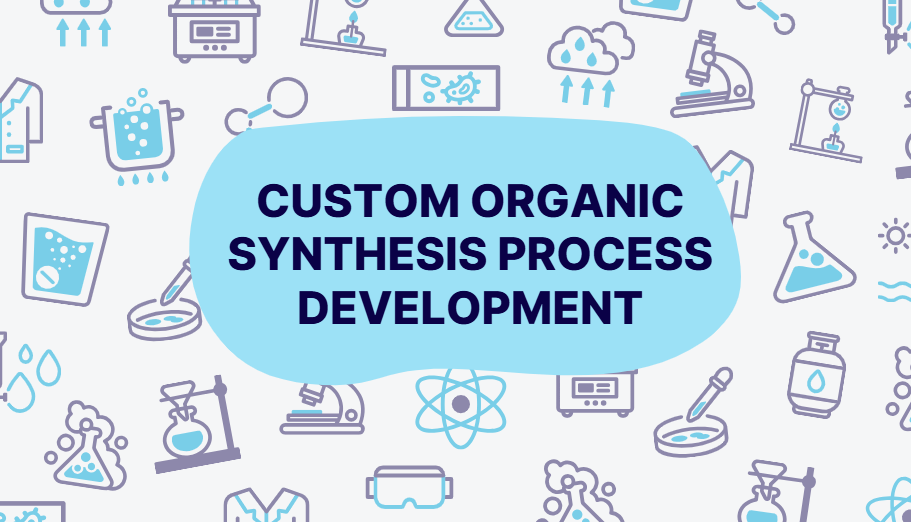Custom polymer synthesis is a transformative innovation for the pharmaceutical industry, offering tailored solutions to meet diverse medical and therapeutic requirements. It allows precise control over material properties, enabling breakthroughs in drug delivery, biocompatibility, and product performance. This guide delves into the top benefits of custom polymer synthesis for pharmaceutical applications.
1. Enhanced Drug Delivery Systems
One of the most significant contributions of custom polymer synthesis is the enhancement of drug delivery systems.
- Controlled Release: Tailored polymers facilitate the gradual release of drugs, ensuring consistent therapeutic levels over time [1].
- Targeted Delivery: Polymers designed to release drugs in specific tissues or organs minimize systemic side effects.
- Improved Bioavailability: Custom polymers can encapsulate poorly soluble drugs, significantly increasing their solubility and absorption [2].
Case Study: Poly(lactic-co-glycolic acid) (PLGA) is a widely used biodegradable polymer in drug delivery microspheres, allowing controlled release over weeks.
2. Biocompatibility and Biodegradability
Custom polymer synthesis enables the creation of biocompatible and biodegradable materials essential for pharmaceutical applications.
- Reduced Toxicity: Custom-designed polymers minimize adverse reactions in the body.
- Environmentally Friendly: Biodegradable polymers decompose into non-toxic by-products, ensuring safety for both patients and the environment.
- Controlled Degradation: The degradation rate of polymers can be precisely adjusted to match therapeutic needs [3].
Example: PEGylated polymers are commonly used to improve the biocompatibility and circulation time of drugs.
3. Overcoming Solubility Challenges
Approximately 40% of new drug candidates suffer from poor solubility. Custom polymers address this challenge effectively.
- Enhanced Solubility: Functionalized polymers can increase the solubility of hydrophobic drugs, improving bioavailability.
- Stabilization: Sensitive drugs can be encapsulated within polymer matrices to protect them from degradation during storage and administration [4].
Case Study: Amphiphilic block copolymers are used to solubilize hydrophobic anticancer drugs like paclitaxel.
4. Development of Smart Polymers
Custom synthesis allows the creation of smart or stimuli-responsive polymers that react to environmental triggers such as pH, temperature, or light.
- pH-Responsive Polymers: Ideal for targeted drug delivery in specific regions of the gastrointestinal tract.
- Thermo-Responsive Systems: Injectable gels that solidify at body temperature provide localized and sustained drug release.
- Light-Activated Polymers: Facilitate on-demand drug release in specific tissues [5].
Example: Poly(N-isopropylacrylamide) (PNIPAAm)-based hydrogels are widely researched for temperature-sensitive drug delivery.
5. Advanced Drug Formulations
Custom polymer synthesis opens possibilities for formulating complex drugs such as biologics, peptides, and nucleic acids.
- Carrier Systems for Biologics: Functionalized polymers stabilize and deliver proteins and nucleotides.
- Dual Drug Delivery: Custom polymers enable co-delivery of two or more drugs with complementary effects.
- Protection from Degradation: Polymers shield drugs from light, oxygen, and enzymatic breakdown during transport and storage [6].
Example: Polymer-drug conjugates improve the pharmacokinetics of anticancer agents, extending their half-life.
6. Versatility in Pharmaceutical Applications
The versatility of custom polymers extends their utility across a wide array of pharmaceutical products, including:
- Injectable Formulations: Long-acting injectables for chronic diseases.
- Wound Healing: Polymers used in hydrogels and scaffolds promote tissue regeneration.
- Vaccines: Polymers act as adjuvants and delivery vehicles for antigens.
- Medical Device Coatings: Antimicrobial polymer coatings prevent infections on implants and catheters [7].
7. Improved Patient Compliance
Polymers designed for extended-release formulations reduce the need for frequent dosing, significantly improving patient adherence to treatment regimens.
Example: Monthly injectables for conditions like diabetes or osteoporosis improve convenience and treatment efficacy.
8. Cost-Effective Manufacturing
Custom polymer synthesis is also a cost-effective solution for pharmaceutical manufacturing.
- Efficient Use of Materials: Customized processes minimize raw material waste.
- Scalable Production: Custom polymers can be manufactured efficiently at an industrial scale.
- Simplified Formulation: Multifunctional polymers reduce the need for multiple excipients, streamlining drug development.
Example: Biodegradable polymer-based implants reduce the need for surgical removal, lowering healthcare costs.
9. Innovations in Drug Delivery Platforms
Custom polymer synthesis has facilitated the development of cutting-edge drug delivery technologies.
- Nanoparticles and Microparticles: Precise drug delivery to target cells at the molecular level.
- Hydrogels: Biocompatible scaffolds for controlled drug release and tissue engineering.
- Liposome Alternatives: Polymer-based systems offer improved stability and drug loading efficiency [8].
Conclusion
Custom polymer synthesis offers unparalleled benefits in pharmaceutical applications, driving innovations in drug delivery, material design, and therapeutic outcomes. By tailoring polymers to meet specific needs, the pharmaceutical industry can achieve higher efficacy, patient satisfaction, and cost-efficiency.
ResolveMass Laboratories Inc. is a pioneer in custom polymer synthesis, providing tailored solutions to meet the unique demands of pharmaceutical clients.
- Custom Polymer Synthesis Services
- Drug Delivery System Development
- Advanced Material Characterization
For tailored solutions and expert assistance, visit our Contact Us to learn more.
References
- Peppas, N. A., et al. Controlled drug delivery systems. Science, 2000. DOI: 10.1126/science.287.5452.1688
- Langer, R. Drug delivery and targeting. Nature, 1998. DOI: 10.1038/35038594
- Vert, M., et al. Biodegradable polymers in drug delivery systems. Advanced Drug Delivery Reviews, 2012. DOI: 10.1016/j.addr.2011.12.009
- Torchilin, V. Multifunctional nanocarriers for drug delivery. Nature Reviews Drug Discovery, 2005. DOI: 10.1038/nrd1699
- Hoffman, A. S. Hydrogels for biomedical applications. Advanced Drug Delivery Reviews, 2002. DOI: 10.1016/S0169-409X(01)00239-3
- Duncan, R. Polymer-drug conjugates in the delivery of anticancer agents. Nature Reviews Cancer, 2006. DOI: 10.1038/nrc1809
- Ratner, B. D. Biomaterials for drug delivery systems. Biomaterials Science, 2012. DOI: 10.1016/j.biomaterials.2012.05.031
- Stupp, S. I., et al. Functionalized polymers for advanced therapeutics. Chemical Reviews, 2013. DOI: 10.1021/cr300503r


